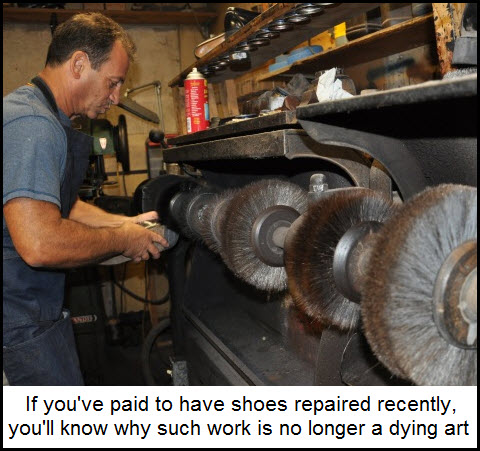Here’s some bracing news for the college crowd: There are 115,520 janitors in the U.S. with bachelor’s degrees or more. Just as surprising is that, even though 30% of the adult population has college degrees, only 20% of the jobs available require one, according to an article by Daniel Greenfield in Frontpage magazine. Students may not be aware of these depressing facts, but they clearly imply that most of the degrees they are now seeking will be largely valueless when they graduate. It’s possible that some undergrads, especially in the humanities departments, are not overly concerned about such things. But you can bet their parents are taking a hard look as steeply rising college costs strain many household budgets beyond prudent limits.
It’s not hard to see why the cost of a college education has risen more sharply than the cost of just about everything else: The U.S. Government, ever eager to blow bubbles, has made loans to students so cheap and plentiful that they currently total more than $1 trillion. At the individual level this translates into student loan debt averaging $26,000. Obviously, those with professional degrees have borrowed a great deal more – typically six figures.
A Degree in English
Speaking personally, we have a son who is enrolled in a four-year college and another who graduated high school in the spring. The older son, following in his father’s footsteps, is majoring in an English, and the degree he is scheduled to receive next year will come with a teaching certificate. Although the job market for English majors is not nearly what it was in the 1970s, when your editor graduated college – it is pretty scary, actually — my wife and I have every confidence that our son will succeed in life because he has succeeded so well thus far.
His younger brother is obsessively interested in cars, and we have therefore encouraged him to pursue an apprenticeship with a friend who owns an auto body shop in San Francisco. If he chooses this path, he’ll be the first Ackerman to enter adult life without having pursued a college degree. My wife (who has a master’s degree in speech and rhetoric) and I have no qualms about this because our son is good with his hands, is a meticulous builder of things, and a shrewd bargainer.
A Very Tricky Choice
The Question of the Week is: What career advice would you give a son or daughter? For today’s grads, the shoals to be navigated have never been trickier. Indeed, the job market is mutating so quickly that even professional recruiters can barely keep up with the changes. Incidentally, when I worked as headhunter myself for a while in the early 1990s, I calculated – incorrectly, as it turned out – that recruiting in healthcare would be a slam-dunk. Guess again. The $100,000+ nurse administrators I worked with initially became a glut on the market when a wave of hospital mergers eliminated about half such positions within a year. I turned to anesthesiologists, who were making $300,000 to $400,000, a sum that translated into fat placement fees. Unfortunately for me – and for anesthesiologists – the cost-cutting HMOs that were springing up at the time took a meat-ax to inpatient procedures, greatly reducing demand for anesthesiologists, among others. Soon thereafter, I was looking for new job. If I were to return to recruiting today, I can’t say that it would be any easier to pick a winning field.
What say you, readers?


Giving my children advice is like teaching pigs to sing; all you do is frustrate yourself and annoy the pigs.
The big key for my carreer has been flexibility and a willingness to take on risky jobs that nobody else wanted. Not risky like dangerous but with a high risk of failure and subsequent carreer damage. Not much physical risk pushing a mouse around.
For those who do go to school, taking courses that lead to skills and knowledge useful in business is always a no-brainer for those not happy living in mom’s basement.
Right now I work in oild & gas and there is strong demand for labour. I think that extends accross the resource sector.